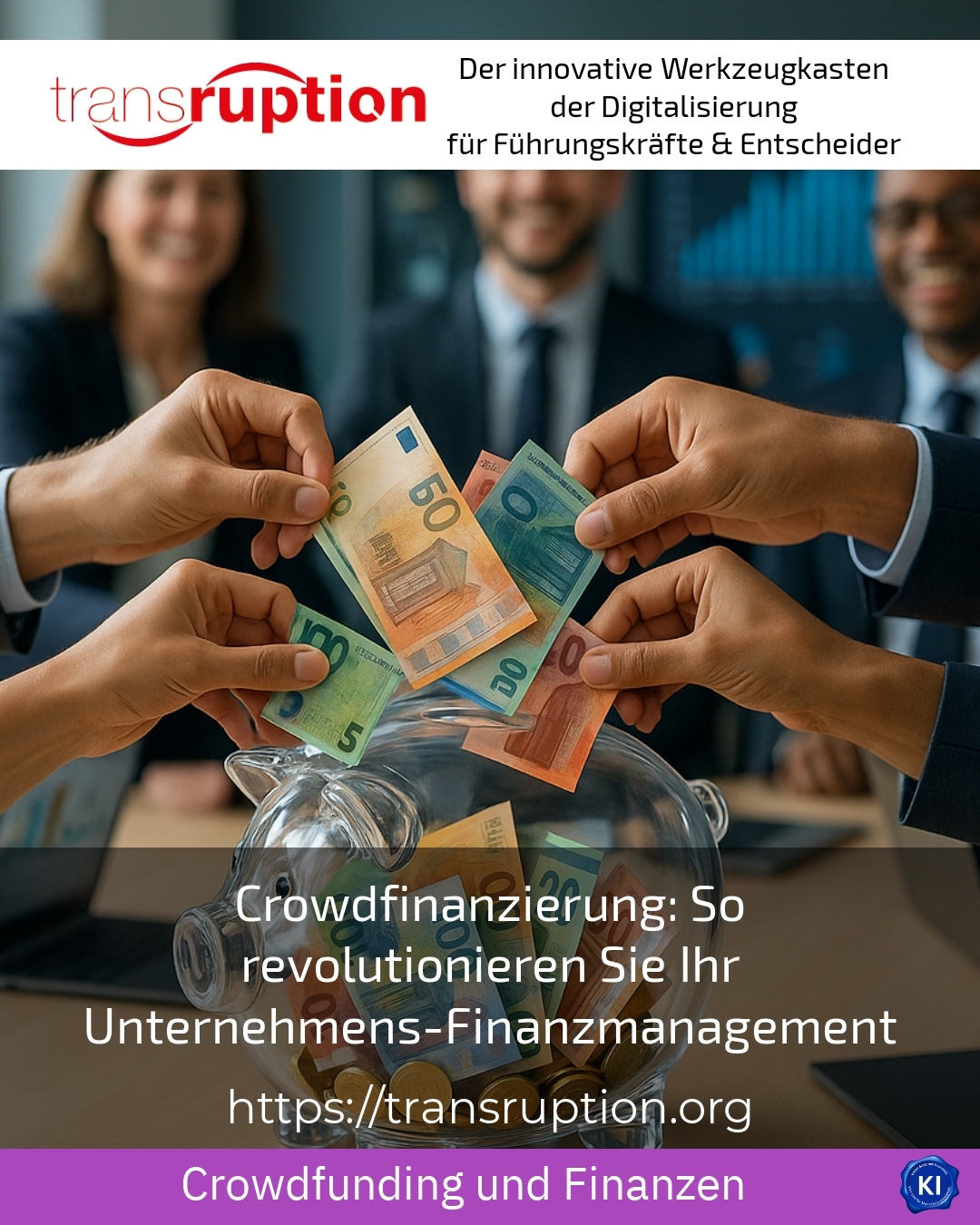How crowdfunding is changing your corporate financial management
More and more companies are discovering crowdfunding as an innovative instrument for financing their projects - and rightly so. Crowdfunding, often referred to as swarm financing, offers a flexible alternative to traditional bank loans or venture capital. Many founders and established companies use this method to raise capital, build a loyal community and test their product directly on the market[1][3].
The advantages of crowdfunding
Crowdfunding has a number of advantages. It makes it possible to obtain capital without the need for complicated loan applications or the loss of company shares. Control over the company remains in your own hands because crowdfunding usually relies on many small supporters rather than individual large investors[1][5]. In addition, your project is presented to a broad public, which increases brand awareness and appeals directly to potential customers[1][3].
Financial flexibility and speed
Compared to traditional financing methods, crowdfunding is often faster and less complicated. The campaign can start after just a few weeks and the capital raised is immediately available[4]. Banks, on the other hand, often require collateral and check creditworthiness in detail. With crowdfunding, success depends largely on the persuasiveness of your idea - and on how you address your target group[2][6].
For example, a start-up for sustainable packaging reaches its funding target within the first week of the campaign launch because it communicates the background and benefits of its innovation transparently. The supporters feel part of the project and actively share the campaign in their networks.
Market test and direct customer contact
Crowdfunding is more than just raising money. It also serves as real market validation. If the crowd reacts positively, this shows that your product or service is attracting interest. This gives you valuable information right from the start and allows you to optimise your offer in a targeted manner[1][5].
Another example: a team is developing an innovative software tool for creative professionals. Even before the official market launch, it collects not only capital via crowdfunding, but also feedback from potential users. The feedback flows directly into further development.
BEST PRACTICE at the customer (name hidden due to NDA contract): An agency for sustainable event formats launches a crowdfunding campaign to develop a completely digital congress format. The target is exceeded after just three weeks. Supporters are involved in the development process and receive exclusive access. This creates a loyal community that actively promotes the offer and thus contributes to its further development. The agency uses the feedback in a targeted manner to tailor the format even better to the needs of the target group.
Action plan: How to start your crowdfunding
For your crowdfunding to be successful, you need smart preparation, bold communication and genuine commitment. Here are some specific tips:
- Define a clear goal for your campaign - such as the launch of a new product or expansion into another market.
- Tell an authentic story that conveys your motivation and the vision of your company.
- Plan attractive offers for your supporters, such as early bird discounts, exclusive products or personalised thank-you gifts.
- Use social media, newsletters and personal contacts to make the campaign visible.
- Provide regular updates to engage the community and build trust.
Success factors for your crowdfunding
Success depends heavily on storytelling and visibility. A vibrant community is often the key - it can spread the word about your project and attract new supporters[1][6]. Transparency plays a central role because the crowd wants to know what their money is being used for[2].
A practical example: A craft business wants to build a new hall and launches a crowdfunding programme. In addition to traditional thank-you gifts, supporters receive insights into the construction progress and are invited to exclusive events. The campaign is accompanied by media coverage, which generates additional attention.
Transruption coaching accompanies your crowdfunding
Many companies turn to transruption coaching because they need inspiration for storytelling, campaign planning and community activation when designing and implementing their crowdfunding. Clients often report that they feel overwhelmed by the multitude of topics and tasks, such as choosing the right platform, legal checks or communicating with the crowd.
Transruption coaching sessions help to develop a convincing campaign, recognise stumbling blocks and fully exploit the potential of crowdfunding. There are often greater opportunities in addressing target groups and maintaining the community than many companies realise.
BEST PRACTICE at the customer (name hidden due to NDA contract): A sustainable fashion company wants to finance a new collection - traditional banks reject the application. With the support of transruption coaching, the team develops a clear message, builds an online community and launches an international crowdfunding campaign. The campaign opens up new markets, gains numerous regular customers and enables the company to grow independently of banks. Suggestions from the crowd are collected during the campaign and are channelled directly into development.
My analysis
Crowdfunding is revolutionising the financial management of many companies: It makes companies independent of individual investors, promotes transparency and strengthens the bond with the target group. The direct feedback from the crowd provides important impetus for product development, market validation and growth. At the same time, it harbours the risk that the desired sum will not be reached, which is why smart preparation is essential.
Companies that get involved in crowdfunding not only benefit financially, but also in terms of marketing and customer proximity. The method is particularly suitable for innovative ideas that traditional financiers are sceptical about. More and more sectors are utilising this form of crowdfunding to break new ground.
Further links from the text above:
What are the advantages and disadvantages of crowdfunding? [1]
What is crowdfunding? [2]
How crowdfunding works [3]
Equity crowdfunding: definition, advantages, risks [4]
Crowdfunding for entrepreneurs: All the info [5]
Crowdfunding: types, advantages and disadvantages [6]
For more information and if you have any questions, please contact Contact us or read more blog posts on the topic TRANSRUPTION here.
















